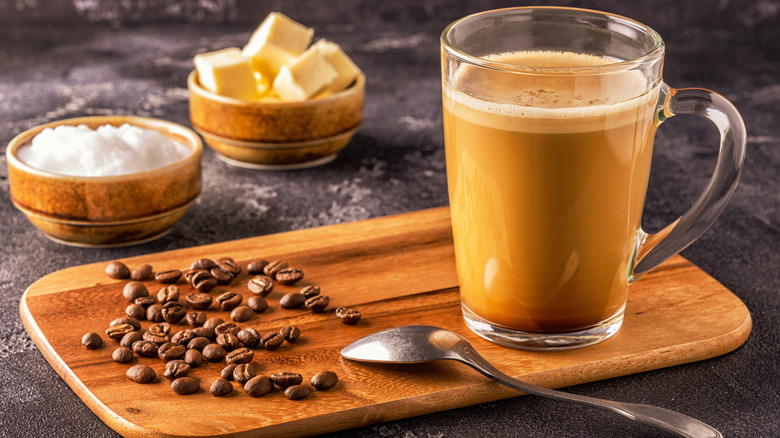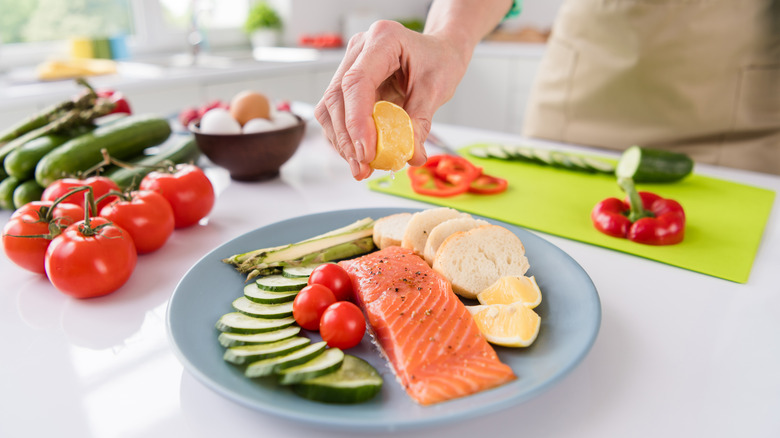Does The Bulletproof Diet Really Work?
If you're familiar with the ketogenic diet, the Bulletproof diet won't feel like too far of a stretch. Even if you've never heard of either, the Bulletproof diet is pretty straightforward. It was invented by biohacker Dave Asprey, who spent 15 years designing a diet that would help him shed excess weight and optimize his overall health, per Healthline. He ended up with a diet that aims to reduce inflammation within the body and lead to a quick, yet sustainable weight loss.
The Bulletproof diet is similar to the ketogenic diet in that it emphasizes low carb and high fat intake (via Healthline). However, unlike keto, which requires this method of eating indefinitely, the Bulletproof diet is cyclical. Dieters adhere to a macronutrient breakdown of 75% fat, 20%protein, and 5% carbohydrates for five or six days a week. On the other one or two days, dieters carry out what's known as "carb refeeding," which essentially means eating carb-heavy approved foods in much greater quantities. Also featured in the Bulletproof diet is Bulletproof coffee, a mixture of coffee, grass-fed butter, and medium-chain triglyceride (MCT) oil, such as coconut oil.
So now you know what the Bulletproof diet is, but does it actually help you lose weight? Healthline reports that there are currently no official studies examining whether this diet leads to weight loss. The success of the diet will likely depend on the total number of calories expended versus the number consumed per day, as well as a variety of other individual factors.
What foods are permitted on the Bulletproof diet?
The official Bulletproof website lists diet-approved foods, as well as those that should be avoided. Since fat makes up the bulk of the total calories consumed per day, it is important to make sure you're choosing the right fat sources. Among the approved foods are grass-fed butter and ghee, coconut oil, cod liver oil, bacon fat, MCT oil, avocado oil, and egg yolks. You should avoid any trans fats, hydrogenated fats, processed vegetable oils, and polyunsaturated fats, which can be found in peanut oil, margarine, commercial lard, and cottonseed.
When it comes to protein, you will need to focus on grass-fed meat and wild-caught fish (per Bulletproof). You can also add collagen protein to your diet, which is typically sold as a powder, to ensure you're consuming all amino acids on a regular basis. Other approved protein sources include pasture-raised eggs and grass-fed whey protein concentrate. Soy should be avoided.
Lastly, you should always choose low-carbohydrate vegetables to reduce the risk of going over the daily allowance (via Bulletproof). These include asparagus, cauliflower, cabbage, celery, mushrooms, lettuce, zucchini, squash, and kale. Certain vegetables that aren't high nor low in carbs can be eaten in moderation, such as artichokes, rhubarb, onion, and peppers. Avoid corn, root vegetables, and peas as these vegetables are all high in carbs. Since fruits also contain carbs, you'll want to stick to berries and avocado and avoid bananas, peaches, pears, oranges, apples, and grapes, among others.


